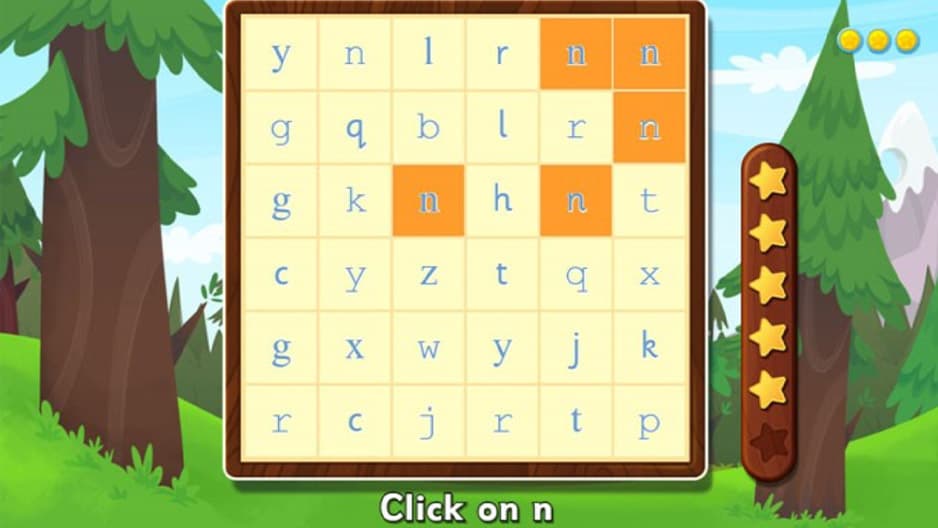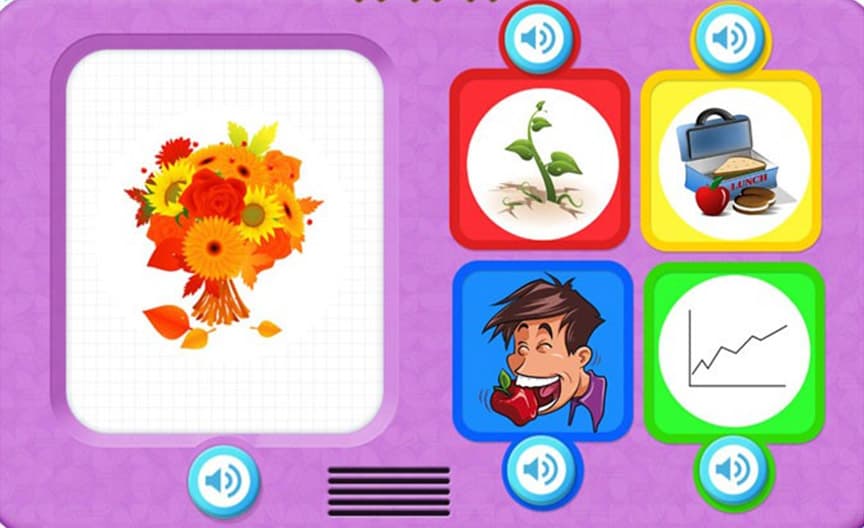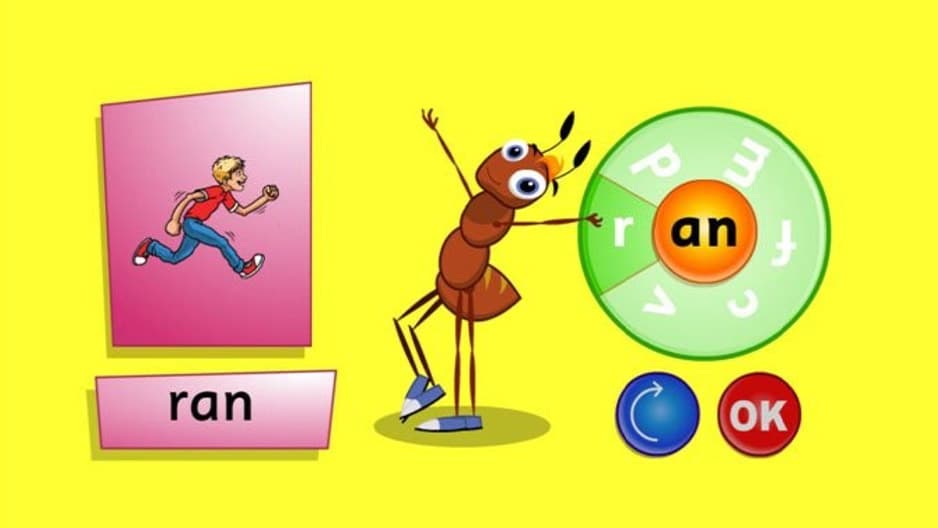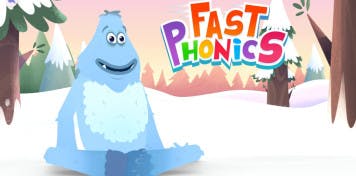


Fun Phonics Games Kids Can Play for Free

Phonics games makes learning to read easy and fun for kids. Help your child crack the reading code by playing these fun games at home or on the go.
One of the most common difficulties children encounter when learning to read is the failure to understand the alphabetic principle, that is, how written spellings represent the sounds of words. Phonics games make the learning process fun and engaging and also help kids retain important phonics information. Keep your child motivated while they hone their phonics skills with these fun phonics games at home or on the go.
4 Fun Phonics Games Your Child Will Love
1. Letter Races Phonics Game
This phonics game requires a magnetic board, magnetic letters and a lot of space! Set up the magnetic board on one side of the room and place the magnetic letters in a basket or bowl on the other side. Call out a sound, or a word starting or ending in a particular sound. Then ask your child (with a ready, set, go!) to pick out the correct magnetic letters and run over as fast as they can to stick it on the board.

The multi‑award winning Reading Eggs programme teaches letter sounds with instructional lessons, e‑books and the most engaging phonics games. Watch your child have fun as they learn important reading skills with a free trial!
2. I Spy the Sound Phonics Game
‘I Spy the Sound’ is a fun way to build phonics skills and phonemic awareness. In this variation of the classic game, ‘I Spy’, ask your child to spy words that begin with a certain sound, rather than a letter. For example, “I spy with my little eye, something beginning with mmm.”
Know the best part of this game? You can play it anywhere. Try phonics games on the move during car drives or lying together at bedtime story time!
Get access to hundreds of phonics games for free
Your child can play a huge variety of phonics games and hone their reading skills in Reading Eggs. The multi-award winning reading program for ages 2–13 has been designed by educational experts to make learning to read, and learning phonics, easy and fun. Try it today with a 30-day free trial.
3. Matching Rhymes Phonics Game
Rhymes help children understand that sounds in our language have meaning and follow certain patterns.
Find a corkboard or something you can stick pins into. Write down a list of words on one side of a sheet of paper and on the other side write down words that rhyme with these words, but in a different order. Here are some words you can use:
hat, cat, sat, rat, mat
pin, tin, fin, win,
run, fun, sun, bun
Then stick pins next to each word. Give your child some rubber bands and ask them to match the rhyming words on each side of the page by placing the rubber bands on the pins to connect the rhyming pair.

Phonics games with a rhyme focus are a great way to help kids with their phonological awareness skills. Get a Reading Eggs free trial today.
4. Fun Phonics Game of Hopscotch
This phonics game helps children develop their ability to match letters to their sounds.
All you need for this fun phonics game is a piece of chalk and the ground. Simply draw hopscotch markings on the ground (how many squares and in what shape they are arranged is up to you). In each square draw a letter of the alphabet (you may want to draw both the upper‑ and lower‑case letters in each).
There are many ways you can play this game – you can call out a letter or combination of letters and ask your child to jump on those letters, and as they do, for them to sound out each letter.

Fast Phonics highly engaging synthetic phonics games help to get kids (aged 5–10) on track with building key reading skills. It's also perfect for struggling older readers. Free Trial.
Or you can ask your child to jump on the letters in alphabetical order, sounding them out as they go along. You can also roll dice and ask your child to jump to the square that matches the number rolled, counting the squares as they jump and sounding the letter out at the end.
So, there you have it, four fun phonics games to help your little one pick up key skills during play – a wonderful way for kids to retain skills!
More Fun Online Phonics Games!
If your child responds better to learning online, Reading Eggs has huge array of fun online phonics games to choose from, including a dedicated synthetic phonics program, Fast Phonics. Only 15 minutes a day of positive screen time is needed to solidify your child's phonics skills in an engaging, multi-sensory way.
Use the Reading Eggs educational app to access our phonics games on the go!
Whichever way your family chooses to play, phonics games are the way to get kids up to speed with their reading skills in the most enjoyable way.
Get access to hundreds of phonics games for free
Your child can play a huge variety of phonics games and hone their reading skills in Reading Eggs. The multi-award winning reading program for ages 2–13 has been designed by educational experts to make learning to read, and learning phonics, easy and fun. Try it today with a 30-day free trial.
Why Phonics Matters
This important group of five skills plays a crucial role in helping kids become successful readers, according to the Science of Reading.
Phonics is a key decoding strategy children learn, setting them on the path to becoming confident, lifelong readers. Phonic games help make the process fun and in turn help kids retain what they are learning and stay motivated.
Phonics instruction refers to the process of helping children learn the relationships between letters and the sounds they make. For example, children learn that the letter b represents the sound /b/ and that it is the first letter in words such as ball, boots, bear and bee.

Play hundreds of fun phonics games that help kids learn to make the connection between sounds and words, blend letters together, spell and read with a Reading Eggs. Free Trial.
The synthetic phonics method of teaching in the Fast Phonics program involves words being broken up into phonemes – the smallest units of sound.
By playing these synthetic phonics games, children learn how to make the connection between the sounds of spoken language and graphemes – the letters of written texts.
Children are taught how to identify all the phonemes in a word and match them to a letter, to be able to spell correctly with this method.
Fast Phonics also teaches kids to learn how to decode words (by breaking them up) into individual sounds and then how to blend all the way through the word.
Get access to hundreds of phonics games for free
Your child can play a huge variety of phonics games and hone their reading skills in Reading Eggs. The multi-award winning reading program for ages 2–13 has been designed by educational experts to make learning to read, and learning phonics, easy and fun. Try it today with a 30-day free trial.






